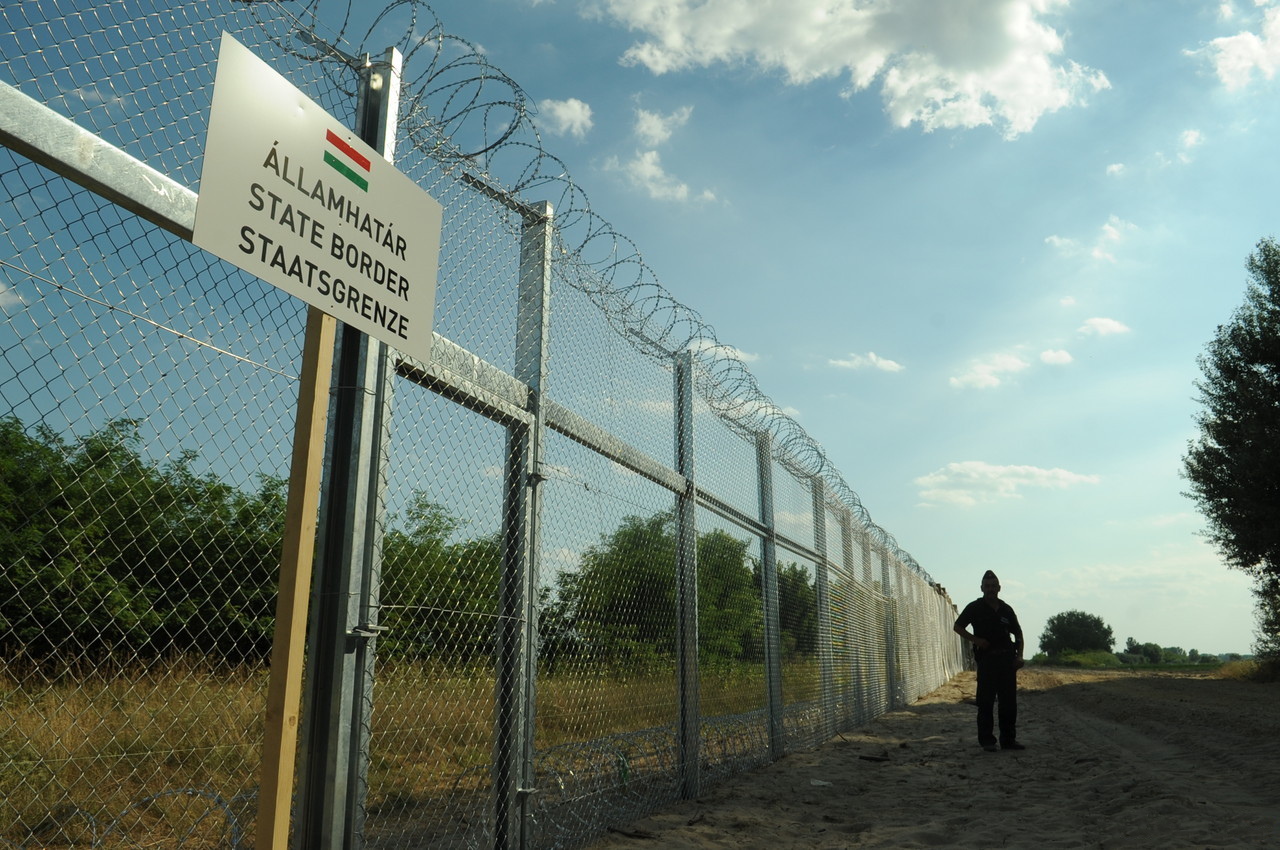How Europe’s ‘Other Half’ Handles Refugees

Is an old divide being given a new face in Europe? It can certainly seem that way when looking at the very public dissent from Central and Eastern European countries against a common EU refugee distribution system. Narratives of a “Compassionate” and “Selfish”[i] Europe can be found across western media ranging from the New York Times[ii] to the blogs of Human Rights advocacy groups. The ever-increasing crush of numbers has only sharpened the debate, with some one million people expected to enter Germany this year and another half a million expected to leave Turkey for the EU in the coming months[iii]. Eastern European countries have at almost every turn, opposed moves by Brussels to get them to accept refugees and asylum seekers. This has been made especially visible by the construction of razor-wire fences and armoured vehicles on the borders of the EU’s more recent members states and the now notorious images of a Hungarian camerawoman tripping up fleeing asylum seekers. It seems like the newest crisis threatening to fracture European unity is migration policy, reminiscent of the rules governing Euro almost brought a key plank of European integration crashing down.

Eastern Europe has a complicated history with migration, population movements and multi-ethnic states. The last two multi-national states in the region – Czechoslovakia and Yugoslavia – did not fare well. Yugoslavia’s collapse marked the most violent period in Europe since the end of World War 2 and resulted in single nation states (with the exception of Bosnia), and the Czech Republic is now a unilingual state after the expulsion of 3 million German inhabitants following World War Two. Eastern Europe does not have any multi-lingual or ethnic states like Belgium on Switzerland. Historians have pointed to the combination of population transfers, mass killings and the establishment of national states with the dissolution of the eastern bloc as having created ethnically homogenous states.[iv] Even Poland with its solid growth rates over the past decade remains 98% white and 94% catholic with almost negligible migration.[v] While Western Europe experienced the benefits of migration in the 70s to cover labour shortages, the east has not shared the same experience of immigration bringing economic benefits. Eastern European states framed their independence and statehood in terms of national and ethnic identity, especially after having had many aspects of national identities suppressed during soviet times. The legacy of this has been that many Eastern Europeans root their statehood in cultural homogeneity rather than political union.

With the various rounds of EU expansion in the 2000s and most recently in 2013, the new member states were asked to pledge support for ‘European Values’ including open markets, transparent government, respect for an independent media, open borders, cultural diversity, protection of minorities and a rejection of xenophobia. The subtext of many criticisms towards many eastern European states has been that they are not adhering to these values and are threatening them. A number of governments – Orban’s government in Hungary in particular – have been accused (most notably by members of the German government)[vii] not only of visibly locking down borders with razor wire fences but also of openly pandering to xenophobic parts of the electorate. This can be seen with the introduction of legislation designed to create a “policy of zero immigration”[xviii]. Central to almost any discussion of EU policy and pressure is the key buzzword in Brussels – solidarity. This can mean solidarity with the Greek people, solidarity with Southern Europe which is hosting the majority of refugees, or as many Eastern European leaders choose to interpret it – solidarity in the face of Russian aggression. Brussels in combination with Germany and France have used ‘Solidarity’ as their rallying call for the EU to implement a “permanent and obligatory mechanism”[viii] for governing how refugees are distributed across the member states. These quotas are now official EU policy, but the leaders of Poland, Hungary, the Czech Republic and Slovakia met in September and issued a statement that “any proposal leading to introduction of mandatory and permanent quota for solidarity measures would be unacceptable”[ix]. In response, german chancellor Merkel has expressed her frustration at these states calling for european solidarity concerning monetary transfers and military protection, but not in refugee policy by threatening to withhold EU funding.
While it is difficult to draw a general pattern explaining much of Eastern Europe’s opposition to refugee resettlement, there are a number of common threads. Most prominently, it is the homogenous nature and cultural singularity of many states and their distrust of multiculturalism. There does seem to be an added edge in the opposition to many of the new waves of refugees coming from the Middle East. In part it is due to the gap between what is perceived to be the Muslim population and the actual proportion; for example, the public in Poland estimates 5% of population to be Muslim while it is actually less than 0.1% [xxiv]. Kenneth Roth executive director of Human Rights Watch observes “If you scratch the surface, why are they so upset? It’s not about jobs or the ability to manage them or social welfare. What it is really about is that they are Muslim”[x]. While the number of displaced people is hitting records not seen since World War 2, with some 60 million globally[xi] and numbers approaching millions seeking to enter Europe, there is a marked contrast between the global scale of the issue and passionate debates within eastern European states over very small numbers. Both Estonia and Slovakia have only agreed to take some 200 refugees[xii]. In Slovakia’s case, they have stressed the need for all refugees to be Christian – ostensibly to facilitate integration and avoid the cost of building mosques. In Estonia this relatively small number was already enough to trigger protests in the capital[xiii]. Across the Eastern member states, the plan is to distribute fewer than 30,000 migrants[xiv], which in a region with a combined population of 106 million[xv], represents a minuscule percentage of the population.

These sentiments seem to have been fuelled by the media scene which has shifted from the post independence outlets that focus on democratic values to smaller fringe populist Europhobic websites and channels, including the one for which employed the Hungarian reporter who tripped up refugees. There has also been an widening gap in media coverage of the issue between the east and west. While western media has focused on eastern Europe’s methods of rejecting refugees, many of their eastern European counterparts have fixated on the origins of the refugees and on their “alien” cultural practices and have minimized sympathy. This is revealed by the leaked email from the Hungarian National broadcaster asked staff to avoid showing the children of migrants and refugees, which seems to be an attempt to dissuade public sympathy[xvii]. Some methods are extreme in trying to reject refugees. Part of this has been a procedure of writing number on migrants’ arms and putting them on trains with misleading destinations in what some call an eerily reminiscent of the darkest period of European history[xix]. Yet these practices are not standard across the region, as Croatia’s prime minister has refused to implement the same measures to shut border and stated “even if that were possible under the constitution – and it is not – it means killing people”[xx].
What much of the discussion surrounding these issues seems to miss when focusing on EU treaty obligations and solidarity is the the experiences of the refugees and the many eastern Europeans who help them. The more prevalent stories are horrendous and appalling, such as the Czech detention centres where asylum seekers are not only charged for their stay but also strip-searched on a regular basis, and described as “conditions worse than prison”[xxi] by Czech’s own justice minister Pelikan. Yet there are more neglected stories of volunteers helping asylum seekers along their journey, such as private citizens driving them hundreds of kilometres and the increasing number of volunteers at Keleti train station in Hungary distributing donated goods[xxii]. All of these stories fit into a wider tapestry of a question of what it means to share European values and responsibilities in a region that has benefitted greatly from EU transfers and integration. As Robert Biedron, the Mayor of the Slupsk, Poland muses, “Here I am, driving on a road that was built with European Union money… It was built with money taken from taxpayers in Italy and Germany and France. Now we refuse to do our part? I am really ashamed”[xxiii].
Works Cited
[i] http://www.theguardian.com/commentisfree/2015/sep/16/eastern-european-migrants-refugees-selfish
[ii] http://www.nytimes.com/2015/09/09/opinion/eastern-europes-compassion-deficit-refugees-migrants.html?_r=0
[iii] http://www.theguardian.com/world/2015/sep/21/eastern-european-leaders-defy-eu-effort-to-set-refugee-quotas
[iv] http://www.theguardian.com/commentisfree/2015/sep/03/europe-east-west-divide-refugee-eu-leaders
[v] http://www.nytimes.com/2015/09/13/world/europe/eastern-europe-migrant-refugee-crisis.html
[vi] http://www.theguardian.com/commentisfree/2015/sep/16/eastern-european-migrants-refugees-selfish
[vii] http://www.theguardian.com/world/2015/oct/23/refugee-crisis-germany-push-compulsory-eu-quotas
[viii] http://www.theguardian.com/world/2015/oct/23/refugee-crisis-germany-push-compulsory-eu-quotas
[ix] http://www.theguardian.com/world/2015/sep/04/eastern-european-leaders-reject-concerted-policy-on-sharing-refugee-burden
[x] http://www.nytimes.com/2015/09/13/world/europe/eastern-europe-migrant-refugee-crisis.html
[xi] http://www.unhcr.org/558193896.html
[xii] http://www.nytimes.com/2015/09/13/world/europe/eastern-europe-migrant-refugee-crisis.html
[xiii] http://www.nytimes.com/2015/09/13/world/europe/eastern-europe-migrant-refugee-crisis.html
[xiv] http://www.theguardian.com/world/2015/sep/05/migration-crisis-europe-leaders-blame-brussels-hungary-germany
[xv] http://www.wolframalpha.com/input/?i=population+of+poland%2Bestonia%2Blatvia%2BLithuania%2Bhungary%2Bslovakia%2Bcroatia%2BSlovenia%2Bbulgaria%2Bromania%2Bczech+republic
[xvi] http://www.nytimes.com/2015/09/09/opinion/eastern-europes-compassion-deficit-refugees-migrants.html?_r=0
[xvii] http://www.theguardian.com/world/2015/sep/05/migration-crisis-europe-leaders-blame-brussels-hungary-germany
[xiii] http://www.nytimes.com/2015/09/09/opinion/eastern-europes-compassion-deficit-refugees-migrants.html?_r=0
[xix] http://www.theguardian.com/world/2015/sep/19/refugees-croatia-hungary-borders-europe
[xx] http://www.nytimes.com/2015/10/23/world/europe/united-nations-accuses-czech-republic-of-violating-refugees-rights.html
[xxi] http://www.nytimes.com/2015/09/09/opinion/how-europes-other-half-lives.html
[xxii] http://www.nytimes.com/2015/09/13/world/europe/eastern-europe-migrant-refugee-crisis.html
[xxiii] http://www.economist.com/blogs/graphicdetail/2015/01/daily-chart-2
